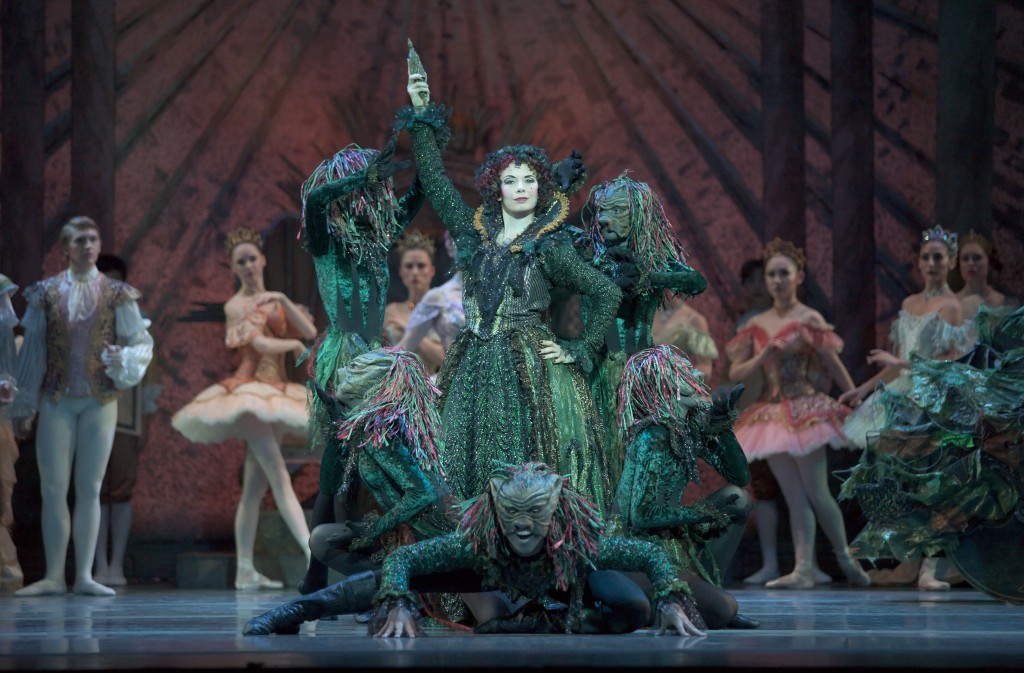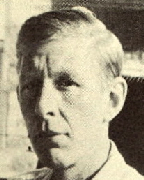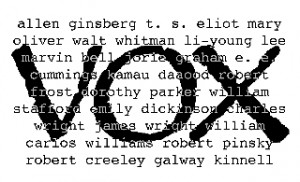By Bob Hicks
 Today we offer a quick link to Mr. Scatter’s review for The Oregonian, under his non de plume Bob Hicks, of Achilles’ Alibi, the latest evening of choral poetry from Eric Hull and his company Vox.
Today we offer a quick link to Mr. Scatter’s review for The Oregonian, under his non de plume Bob Hicks, of Achilles’ Alibi, the latest evening of choral poetry from Eric Hull and his company Vox.
The program repeats this Thursday through Sunday, Oct. 22-24. Good stuff; catch it if you can. You can also read about Mr. and Mrs. Scatter’s previous visit to a Vox performance, in April.
As the review suggests, the poems of William Stafford are at the heart of this edition. But lots of other fine poets are along for the ride, and in honor of the baseball playoffs and impending World Series — like fresh apple cider and the ritual bringing-out of the sweaters, they’re part of what makes autumn special — we quote from one of them, May Swenson‘s bases-clearing double off the wall, Analysis of Baseball:
Sometimes
ball gets hit
(pow) when bat
meets it,
and sails
to a place
where mitt
has to quit
in disgrace.
That’s about
the bases
loaded,
about 40,000
fans exploded.
*
Cy Young baseball card from 1911, the last of his 22 years pitching in the big leagues. He won 511 games, by far the most ever — and lost 316, more than a lot of Hall of Fame pitchers won. Wikimedia Commons.

 In
In  In 1963 I had the honor of hosting Auden, who was giving a reading at a community college I attended at the time. There was a dinner and reception before the reading, during which he drank, by my own nervous count, a dozen martinis! And seemed drunk. We didn’t know what to do, and when approached he assured us all was fine, no, he didn’t want any coffee …. so off we went to the reading, nervous as hell. He still seemed drunk to me when he went to the podium. Then somehow he didn’t. He gave a brilliant, flawless reading. Then he stepped away, seemed drunk again, and wanted to know when he could have a drink.
In 1963 I had the honor of hosting Auden, who was giving a reading at a community college I attended at the time. There was a dinner and reception before the reading, during which he drank, by my own nervous count, a dozen martinis! And seemed drunk. We didn’t know what to do, and when approached he assured us all was fine, no, he didn’t want any coffee …. so off we went to the reading, nervous as hell. He still seemed drunk to me when he went to the podium. Then somehow he didn’t. He gave a brilliant, flawless reading. Then he stepped away, seemed drunk again, and wanted to know when he could have a drink. It’s the latest in Eric Hull‘s
It’s the latest in Eric Hull‘s  Waterbrook is basically a room with an entrance area and a door leading to what serves as a green room for the performers. Somewhere around the corner, down a broad-plank floor, is a restroom. On Saturday the performance space had a few rows of folding chairs for the spectators, a lineup of music stands up front for the six performers, and three chairs to the side for the performers who occasionally sat a poem out. In other words: all the tools you really need to create some first-rate performing art.
Waterbrook is basically a room with an entrance area and a door leading to what serves as a green room for the performers. Somewhere around the corner, down a broad-plank floor, is a restroom. On Saturday the performance space had a few rows of folding chairs for the spectators, a lineup of music stands up front for the six performers, and three chairs to the side for the performers who occasionally sat a poem out. In other words: all the tools you really need to create some first-rate performing art.